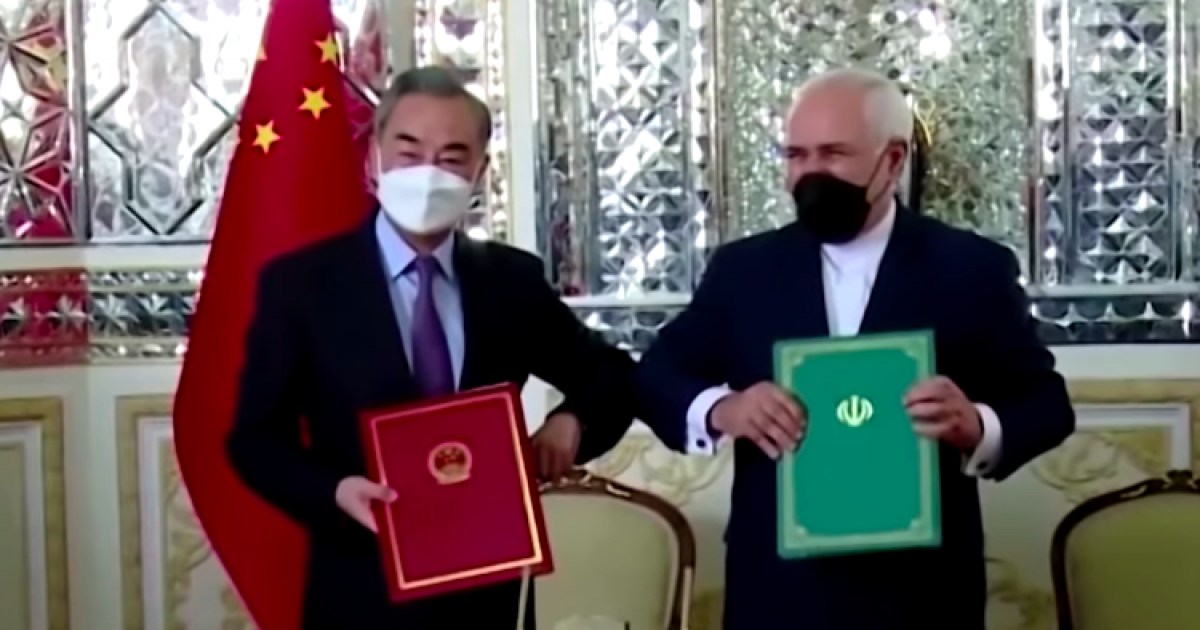
On March 27, 2021. China and Iran came to an economic agreement where the rising East Asian power promised to invest in Iran over the course of 25 years in exchange for a reliable supply of oil to help satisfy its growing energy demands.
This deal could see China’s influence grow in the Middle East and serve as a way for Iran to escape the U.S. government’s stiff sanction policies. There remains questions about how much of the agreement would be implemented while the U.S. tries to re-enter the previously scrapped nuclear deal with Iran.
According to Fars News Agency, Iranian foreign minister Javad Zarif and Chinese foreign minister Wang Yi signed the agreement during a ceremony at the foreign ministry in Tehran on March 27. The New York Times reported that Wang paid Iran a two-day visit, which “reflected China’s growing ambition to play a larger role in a region that has been a strategic preoccupation of the United States for decades.”
“China firmly supports Iran in safeguarding its state sovereignty and national dignity,” Wang said during a meeting with President Hassan Rouhani. In light of the US’s increasingly hostile actions, Wang called on the US to immediately rescind its sanctions on Iran and “remove its long arm of jurisdictional measures that have been aimed at China, among others.”
The agreement contains $400 billion of Chinese investments in sectors such as banking, healthcare, information technology, ports, railways, and telecommunications over the course of 25 years. In exchange, China would receive a steady supply of Iranian oil at a discount.
In the agreement’s draft, there were calls for increased intelligence-sharing, joint training and exercises, and cooperation on research and weapons development.
“China is a friend for hard times,” declared foreign minister Zarif, following the signature of the deal. “The history of cooperation between two ancient cultures of Iran and China dates back centuries. Signing the cooperation agreement will further strengthen the ties of the two nations.”
Iran’s drift into China’s arms represents a logical form of behavior from a state that has been subject to intense economic and security pressure from the West in the last four decades.
“For too long in our strategic alliances, we have put all our eggs in the basket of the West, and it did not yield results,” observed Ali Shariati, an Iranian economic analyst. “Now, if we shift policy and look at the East, it won’t be so bad.”
U.S. policymakers should recognize the changing tides of the present-day geopolitical arena. Sanctioning and saber-rattling countries left and right are leading countries such as Russia, China, and Iran to form strategic partnerships to balance against the U.S. and other Western government’s attempts to impose liberalism on countries that want nothing to do with the West’s increasingly dysfunctional governing structures.
Western countries should not be looking for problems abroad when they have so many domestic problems to deal with inside of their jurisdictions.



